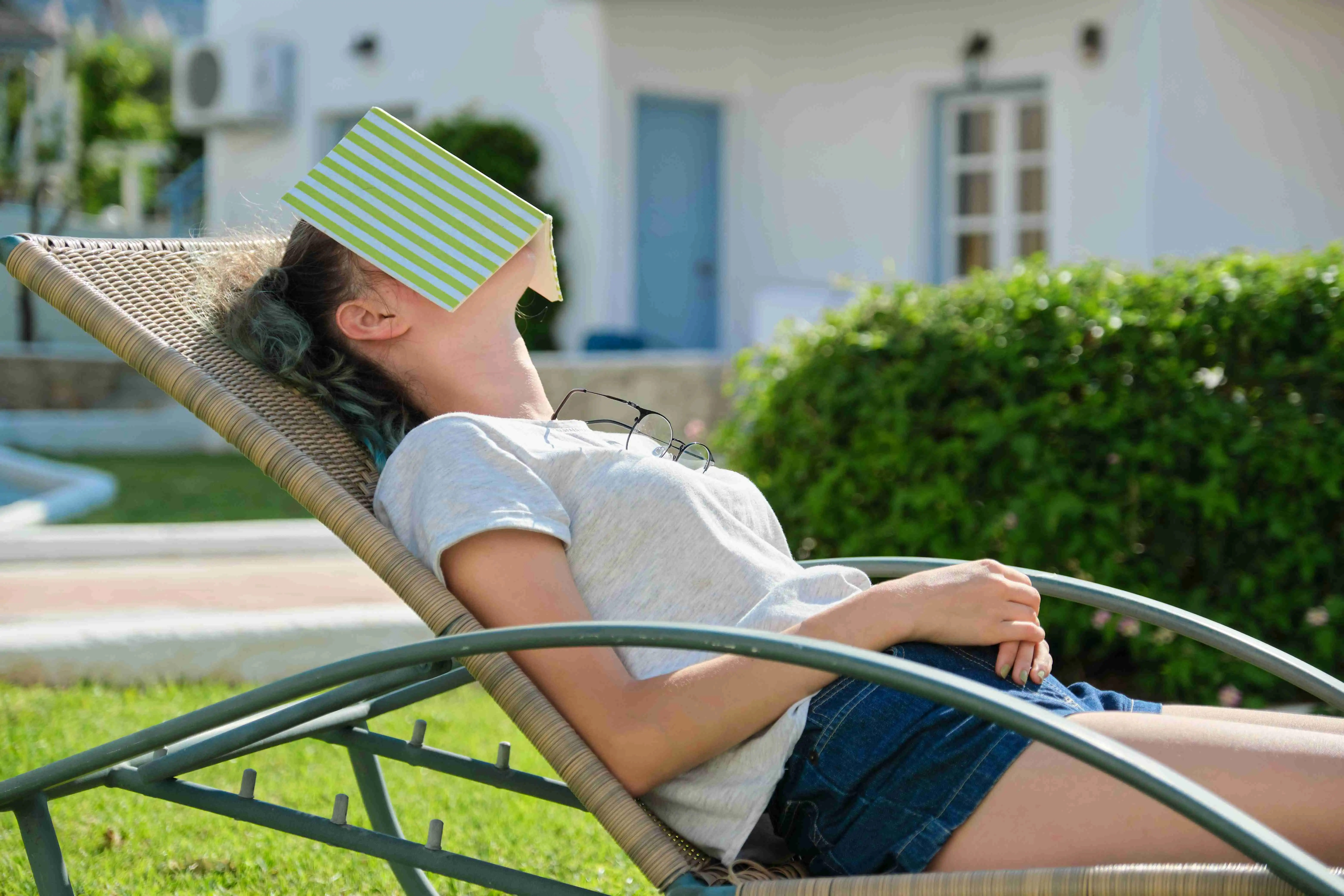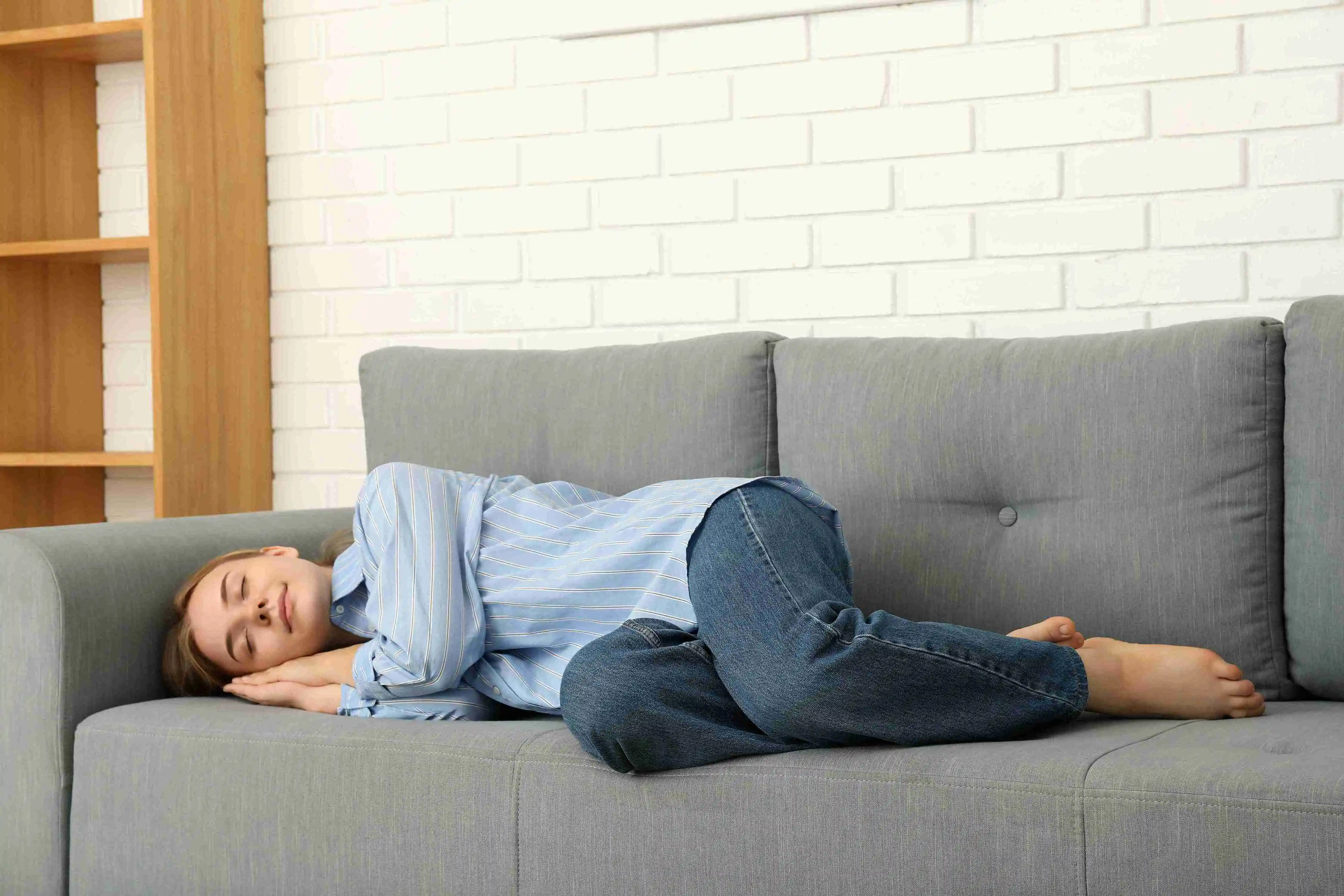Napping has long been a tool for boosting energy, improving alertness, and enhancing daily productivity. While a nap may provide short-term benefits, its effects on nighttime rest can vary depending on duration, timing, and individual needs. Understanding how sleep works can help explain how naps influence sleep cycles and overall rest quality.
In this article, we'll explore how naps affect your nighttime sleep and offer tips for maximizing their benefits without disrupting your sleep cycle.
The Science Behind Napping
Napping is rooted in the body’s natural sleep-wake cycle, or circadian rhythm, which regulates periods of alertness and sleepiness throughout the day.
Short naps, typically lasting 10-20 minutes, help boost alertness, improve mood, and enhance cognitive function by allowing the brain to rest without entering deeper sleep stages that can lead to grogginess.
However, excessive napping or napping too late in the day can interfere with nighttime sleep, disrupting the natural circadian rhythm.
Types of Naps and Their Effects

Not all naps are created equal, and their impact on nighttime sleep can vary depending on the type of nap you take. Here are some common types of naps and their effects:
Planned Naps
- Power Nap (10-20 minutes): This short nap duration allows you to experience the lighter stages of sleep without entering deep sleep. Power naps can provide a quick burst of alertness and energy without significantly disrupting your nighttime sleep.
- Short Nap (30-60 minutes): During a short nap, you may enter the deeper stages of sleep, including slow-wave sleep. While these naps can be restorative, they may also lead to sleep inertia (grogginess) upon waking, which can temporarily impair cognitive performance.
- Long Nap (90 minutes or more): Long naps typically involve a full sleep cycle, including rapid eye movement (REM) sleep. These naps can be more refreshing, but they may also interfere with your ability to fall asleep at night, leading to disrupted nighttime sleep patterns.
Emergency Naps
These naps are taken when an individual is feeling overly tired and needs a quick energy boost to continue functioning.
They are often unexpected, taken when sleep deprivation or fatigue has reached a level that cannot be ignored. Emergency naps are typically shorter in duration (around 15-30 minutes), as they are meant to help temporarily alleviate fatigue without causing too much disruption to your nighttime sleep.
Habitual Naps
Habitual naps are regularly scheduled naps that are taken at the same time each day. They are common in cultures where afternoon naps are a part of daily life.
Habitual nappers tend to develop a pattern that helps them feel refreshed and more energized throughout the day.
The effects of these naps on nighttime sleep vary depending on the timing and length, but they generally help reduce sleep pressure and can promote better overall sleep hygiene when integrated into a balanced sleep routine.
Benefits of Napping
Despite the potential impact on nighttime sleep, napping offers several benefits that should not be overlooked:
Improved Alertness and Cognitive Performance
Napping, especially short power naps, can improve focus, memory, and cognitive performance. A quick nap allows the brain to rest and recharge, making it easier to concentrate and process information.
Enhanced Mood
Napping has been shown to improve mood and reduce feelings of irritability. It helps alleviate stress, reduce anxiety, and foster a more positive emotional state.
Napping can be especially beneficial during stressful times when you need a mental reset.
Stress Reduction
Taking a nap can provide a moment of relaxation and reduce stress levels. The rest gained during a nap promotes the body’s ability to recover your mental health and physical health, leading to a reduction in overall tension.
Increased Productivity
People who nap regularly often report being more productive and efficient in their work. The mental clarity gained from a nap helps to stay sharp and avoid the mental fatigue that can lead to mistakes and a slower work pace.
Memory Consolidation
Naps, particularly those that include REM sleep, have been shown to aid in memory consolidation. This means that taking a nap after studying or learning new information can improve retention and recall, making napping an excellent solution for students or anyone engaged in memory-intensive tasks.
Potential Downsides of Napping

While napping can be beneficial, it's essential to be aware of potential downsides:
Sleep Inertia
Sleep inertia refers to the groggy feeling that can occur after waking up from a nap, especially when the nap lasts too long or occurs during deeper stages of sleep.
During this period, cognitive functions such as memory, concentration, and decision-making are temporarily impaired. This can affect your ability to perform tasks effectively right after waking, especially if you are in a deep sleep phase.
Disrupted Nighttime Sleep
Taking naps, especially later in the day or for prolonged periods, can interfere with your ability to fall asleep or maintain sleep at night.
Napping too late can delay the onset of sleep, reducing your overall sleep quality and disrupting your circadian rhythm. If you're already getting enough rest during the night, naps may only contribute to the problem of poor sleep at night.
Sleep Disorders
Frequent or poorly timed naps may exacerbate sleep disorders, such as insomnia or sleep apnea. Napping too often, or for extended periods, can create an imbalance in your sleep-wake cycle and contribute to long-term sleep disturbances.
People with existing sleep conditions should be cautious about how napping impacts their nighttime rest.
Social or Workplace Stigma
In many cultures, napping during the day may be stigmatized as a sign of laziness or poor time management. This can create social or workplace pressure, making people feel guilty for taking naps, even when they may be beneficial.
How Napping Affects Your Nighttime Sleep
The impact of napping on nighttime sleep can vary depending on several factors, including the timing, duration, and quality of your nap, as well as your individual sleep needs and preferences. Here's how napping can influence your nighttime sleep:
Timing
The timing of your nap plays a crucial role in how it affects nighttime sleep. Napping too late in the afternoon or evening may delay the onset of nighttime sleep, as it can reduce your sleep drive when it’s time to go to bed.
Duration
The duration of your nap also influences your nighttime sleep. Shorter naps (10-20 minutes) are less likely to interfere with nighttime sleep because they stay within the lighter stages of sleep.
Longer naps (60 minutes or more) may allow you to enter deeper stages of sleep, potentially leaving you feeling groggy and disrupting your sleep-wake cycle.
Sleep Debt
If you're sleep-deprived, naps can help make up for some of the lost sleep, but they may not fully compensate for a chronic lack of rest.
While a nap can temporarily reduce sleep debt, it's important to focus on maintaining a consistent, adequate sleep schedule at night to avoid the long-term effects of sleep deprivation.
Individual Differences
Everyone’s sleep needs and patterns are unique, so the effects of napping on nighttime sleep will vary. Some people may find that napping helps them feel more alert without affecting their nighttime rest, while others may experience disrupted sleep.
Ideal Nap Duration and Timing

To maximize the benefits of napping while minimizing the potential impact on nighttime sleep, it's crucial to consider the ideal nap duration and timing:
Nap Duration
The duration of a nap plays a significant role in determining its effects. Here are the ideal nap lengths based on your goals:
| Time | Description | Ideal For |
|---|---|---|
| Power Nap (10-20 minutes) | A short nap that stays in the lighter stages of sleep, avoiding sleep inertia and minimizing nighttime sleep disruption. | Quick boost in alertness and energy, mental refresh without feeling groggy. |
| Short Nap (30-60 minutes) | Involves entering deeper stages of sleep, including slow-wave sleep, which can be restorative but may cause grogginess. | Rest when you have more time but still need to function afterward. Avoid late-day naps. |
| Long Nap (90 minutes) | Completes a full sleep cycle, including REM sleep, offering improved memory and creativity. However, it may affect nighttime sleep if taken too late. | Refreshing and restorative sleep, best taken earlier in the day to avoid disrupting nighttime rest. |
Timing
The timing of your nap is essential in determining how it affects your nighttime sleep:
- Early Afternoon (Before 3 PM): Napping earlier in the day (typically between 1 PM and 3 PM) is less likely to interfere with nighttime sleep. During this time, the body naturally experiences a dip in alertness, making it an ideal time to rest without disrupting your sleep cycle.
- Late Afternoon or Evening: Napping later in the day (after 3 PM) can make it harder to fall asleep at night. If you need a nap in the evening, consider keeping it short (under 30 minutes) to avoid disrupting your nighttime rest.
Individual Preferences
Each person’s sleep needs are unique, so the ideal nap duration and timing may vary. Factors like personal sleep habits, daily schedule, and how well you sleep at night should guide your napping choices.
Pay attention to how your body responds to naps and adjust accordingly to ensure you are getting enough quality rest during both naps and nighttime sleep.
Who Benefits Most from Napping?
Napping can be beneficial for a variety of people, depending on their individual needs and circumstances. Here are the groups that benefit most from napping:
Shift Workers
Shift workers, such as those in healthcare or emergency services, often experience disrupted sleep schedules due to working irregular hours. Napping helps them compensate for sleep loss and stay alert during their shifts, improving overall performance and reducing the risk of accidents caused by fatigue.
Sleep-Deprived Individuals
People who have not been getting enough sleep at night due to stress, late nights, or poor sleep quality can benefit greatly from naps. A nap provides an opportunity to recover some lost sleep and improve cognitive performance, mood, and energy levels during the day.
Older Adults
As people age, they often experience changes in their sleep patterns, such as waking up earlier or having more fragmented sleep. Napping can help older adults meet their sleep needs and reduce feelings of fatigue.
Short naps, in particular, can help improve alertness and cognitive function without negatively affecting nighttime sleep.
Children and Adolescents
Children and teenagers require more sleep than adults to support growth, development, and overall health. Naps can be crucial for ensuring they get the rest they need, especially if they have irregular sleep schedules or wake up early for school.
For younger children, naps are essential for mood regulation, cognitive development, and energy levels. For adolescents, naps help counteract sleep deprivation, especially with the pressures of school and extracurricular activities.
Tips for Effective Napping
To ensure that your naps are both refreshing and minimally disruptive to your nighttime sleep, consider the following tips:
Create a Conducive Environment
A quiet, dark, and comfortable environment can help you fall asleep faster and improve the quality of your nap. Use blackout curtains, an eye mask, or white noise if needed.
Ensure your room is at a comfortable temperature, and remove distractions such as electronic devices that could interrupt your rest.
Keep Naps Short
To avoid grogginess and disruption to your nighttime sleep, limit naps to 10-30 minutes. This duration allows you to stay in the lighter stages of sleep without entering deep sleep, preventing sleep inertia (the groggy feeling upon waking) and minimizing interference with your sleep cycle.
Choose the Right Timing
Timing is key when it comes to napping. Ideally, aim to nap during the early afternoon, between 1 PM and 3 PM.
During this time, your body naturally experiences a dip in alertness, making it the best time to recharge without affecting your nighttime sleep. Avoid naps too late in the day, as they can delay your ability to fall asleep at night.
Make It Intentional
Napping should be a conscious choice to recharge, not a habit of simply filling time. When you take a nap, focus on relaxing and resetting your energy levels. Ensure that naps are part of a broader, well-balanced sleep schedule and not a substitute for adequate nighttime rest.
Set an Alarm
Setting an alarm can help you avoid oversleeping and ensure you wake up after your desired nap duration. This is particularly important for longer naps, as waking up after a full sleep cycle (90 minutes) can leave you feeling refreshed while waking up during deep sleep can lead to grogginess.
Practice Good Sleep Hygiene
Good sleep hygiene practices are essential for maintaining overall sleep health. Stick to a regular sleep schedule, avoid caffeine or heavy meals before napping, and limit screen time in the hour leading up to your nap. Consistency in your sleep patterns makes naps more effective and ensures better rest at night.
Monitor Your Sleep Quality
Keep track of how you feel after naps. If you consistently feel refreshed and alert, you're likely napping optimally. If you feel groggy or your nighttime sleep is disturbed, adjust the length or timing of your naps. Sleep tracking apps or journals can help you monitor the quality of both naps and nighttime rest.
Consider Individual Factors
Every person’s sleep needs and habits are different. Pay attention to how your body responds to different nap lengths and timings. For example, some people may function better with shorter naps, while others might find longer naps more beneficial.
Be mindful of any underlying sleep disorders or conditions (such as insomnia or sleep apnea) that could affect your ability to nap effectively. If necessary, consult a healthcare professional for personalized sleep advice.
FAQs
Is it better to nap or not nap?
The decision to nap or not nap depends on your circumstances and needs. If you're well-rested and don't feel the need for a nap, it's generally better to avoid napping to prevent disruptions to your nighttime sleep. However, if you're feeling fatigued or need a boost in alertness, a strategic nap can be beneficial.
Can napping make up for lost sleep at night?
While napping can provide temporary relief from sleep deprivation, it should not be considered a substitute for a good night's sleep. Consistently relying on naps to make up for lost sleep can lead to sleep debt and potential health consequences.
Does napping work for everyone?
Napping can be beneficial for many people, but it doesn't work for everyone. Some individuals may experience disrupted nighttime sleep, sleep inertia, or struggle with nap timing. Personal factors, such as sleep disorders, age, and lifestyle, influence how effective naps are, so it’s essential to find what works best.
Is it better to nap in the morning or afternoon?
Generally, it's recommended to nap in the afternoon, around 1-3 PM, when our circadian rhythms naturally experience a dip in alertness. Morning naps may interfere less with nighttime sleep, but they can also disrupt your natural sleep-wake cycle.
Is it possible to nap too much?
Yes, excessive napping or irregular napping patterns can be a sign of an underlying sleep disorder or other health issues. If you find yourself napping excessively or unable to function without frequent naps, it's advisable to consult with a healthcare professional.
Conclusion
Napping can be both beneficial and disruptive to nighttime sleep, depending on how and when it’s done. By being mindful of nap duration, timing, and individual sleep needs, you can harness the benefits of a quick rest while minimizing any potential negative impact on your nighttime sleep.
Jessica H.
Jessica is a reviewer, writer, and sleep enthusiast at Sleepiverse. Jessica graduated with her master's degree in Nursing research and education. She is a registered nurse and currently works in the Intensive Care Unit. Since becoming a nurse, Jessica has worked the night shift, which means a disrupted sleep schedule. Knowing she needed to function at her best while caring for patients at night, she spent a lot of time researching how to sleep well with a difficult schedule.


